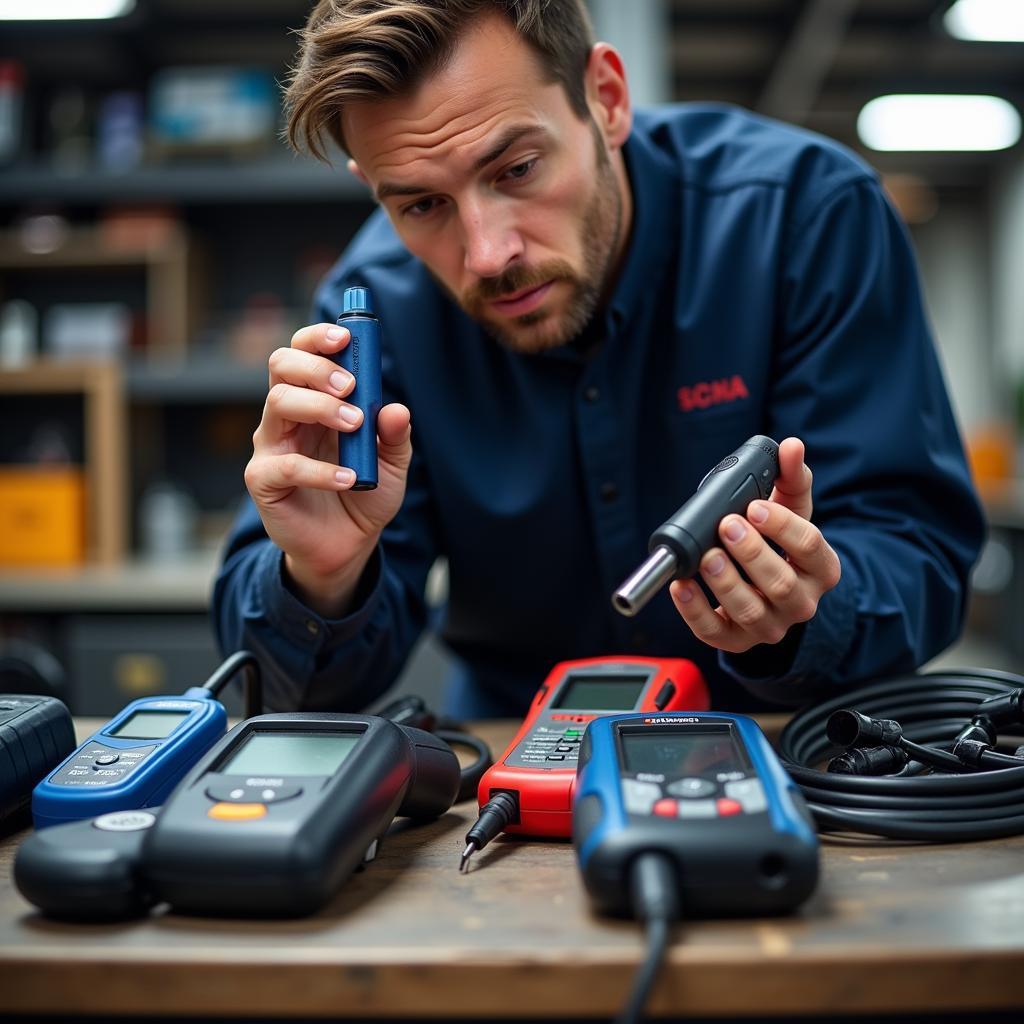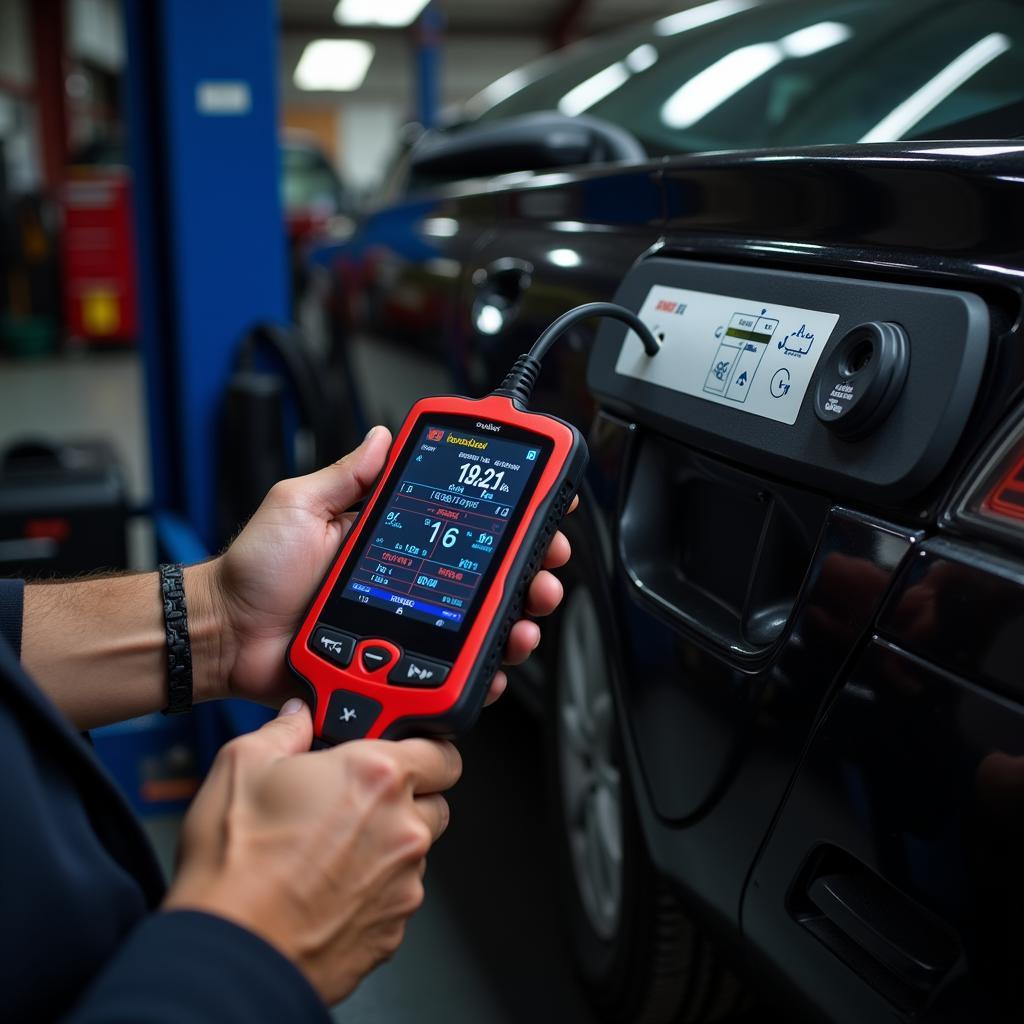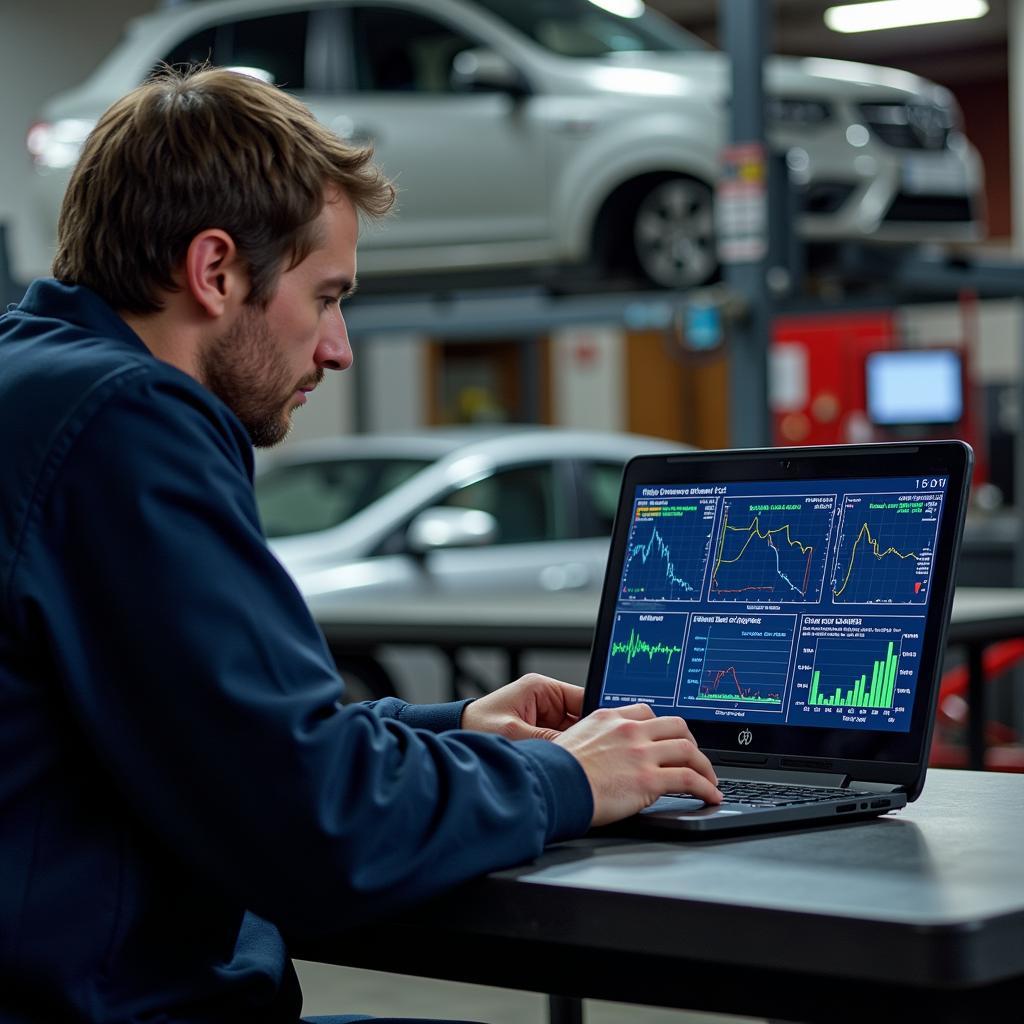Finding the right professional car diagnostic tool can be a game-changer for mechanics, technicians, and automotive businesses. With a market flooded with options, each boasting an array of features, choosing the Best Professional Car Diagnostic Tool for your specific needs requires careful consideration. This guide will equip you with the knowledge to make an informed decision.
 Selecting a Professional Car Diagnostic Tool
Selecting a Professional Car Diagnostic Tool
Understanding Your Diagnostic Needs
Before diving into the world of professional car diagnostic tools, it’s crucial to assess your requirements. Ask yourself:
- What types of vehicles do you typically work on? Some tools specialize in specific makes or models, while others offer broader compatibility.
- What systems do you need to diagnose? Basic tools might only read engine codes, while advanced options provide comprehensive diagnostics for modules like ABS, airbags, and transmission.
- What is your budget? Professional car diagnostic tools range from affordable handheld devices to sophisticated, high-end systems.
Key Features to Consider
Once you have a clear understanding of your diagnostic needs, you can start evaluating tools based on the following key features:
1. Vehicle Coverage
The best professional car diagnostic tool should seamlessly integrate with the vehicles you frequently service. Look for tools that support a wide range of makes and models, including both domestic and import vehicles.
2. System Coverage
Consider the depth and breadth of system diagnostics offered. Do you primarily work on engine diagnostics, or do you need access to modules like ABS, SRS (airbags), transmission, and body control?
3. Software and Updates
User-friendly software can significantly enhance your diagnostic experience. Intuitive interfaces, clear data presentation, and regular software updates are essential for accurate and efficient troubleshooting.
4. Bi-Directional Controls
Bi-directional control allows you to not only read but also interact with vehicle systems. This functionality proves invaluable for component testing, such as actuating solenoids or controlling relays.
 Mechanic Using Car Diagnostic Tool
Mechanic Using Car Diagnostic Tool
5. Data Logging and Reporting
For in-depth analysis and professional reporting, look for tools with robust data logging capabilities. This feature allows you to record live data streams, capture intermittent faults, and generate comprehensive reports for clients.
6. Technical Support and Resources
Reliable technical support and access to comprehensive resources, such as wiring diagrams and repair manuals, can prove invaluable when facing complex diagnostic challenges.
Top Considerations for Specific Professionals
Mobile Mechanics:
- Portability and Durability: Opt for compact, lightweight tools that are built to withstand the rigors of mobile work environments.
- Wireless Connectivity: Wireless connectivity options, such as Bluetooth or Wi-Fi, enable seamless communication with your diagnostic device.
Independent Garages:
- Versatility and Expandability: Choose tools that offer a balance between functionality and affordability, with the option to expand capabilities as your business grows.
- Integration with Shop Management Systems: Streamline your operations by selecting tools that integrate with your existing shop management software.
Dealership Technicians:
- OEM-Level Functionality: For dealership environments, prioritize tools that provide OEM-level functionality, including specialized diagnostics and programming capabilities.
- Comprehensive Training and Support: Ensure the tool comes with comprehensive training and ongoing support to maximize its potential within your dealership.
 Analyzing Car Diagnostic Data
Analyzing Car Diagnostic Data
Making the Investment: Tips for Choosing Wisely
- Read Reviews: Thoroughly research and compare different professional car diagnostic tools. Online reviews from reputable sources can provide valuable insights from other professionals.
- Consider Future Needs: Anticipate your future diagnostic requirements and choose a tool that can adapt and grow with your business.
- Explore Financing Options: Explore financing options or lease-to-own programs to make high-end diagnostic tools more accessible.
Conclusion
Selecting the best professional car diagnostic tool is a significant investment that can significantly impact your efficiency, accuracy, and ultimately, your bottom line. By carefully evaluating your needs, understanding key features, and conducting thorough research, you can confidently choose the tool that aligns best with your diagnostic goals and propels your automotive business forward.
FAQs
Q: What is the difference between a code reader and a professional car diagnostic tool?
A: While code readers can retrieve basic engine codes, professional car diagnostic tools offer a much wider range of capabilities, including advanced diagnostics for multiple vehicle systems, bi-directional controls, data logging, and more.
Q: Do I need a professional car diagnostic tool if I’m a DIY enthusiast?
A: While professional-grade tools offer comprehensive functionality, there are more affordable DIY-friendly options available. Consider your skill level and the complexity of repairs you plan to tackle.
Ready to take your car diagnostics to the next level?
Contact DiagFixPro today! Our team of experts can help you find the perfect professional car diagnostic tool for your unique needs. Reach us via WhatsApp at +1(641)206-8880 or email us at [email protected]. We offer 24/7 support to keep you moving.

Leave a Reply